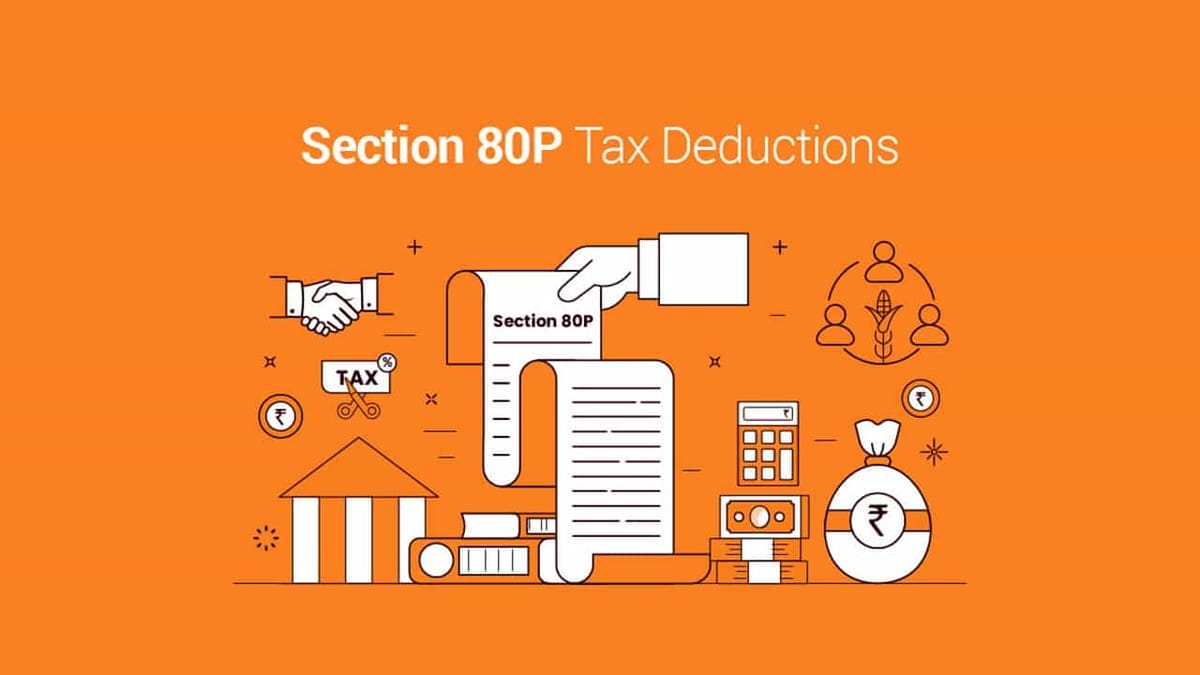Dividend and interest earned on surplus held with cooperative bank eligible for deduction u/s 80P: ITAT
CA Pratibha Goyal | Dec 15, 2022 |

Dividend and interest earned on surplus held with cooperative bank eligible for deduction u/s 80P: ITAT
The brief facts of the case are that the assessee is a registered co- operative society engaged in the business of providing pesticides to its members. During the year under consideration, the assessee earned interest and dividend income from its investment in Rajkot District Co-operative Bank Ltd out of it surplus funds. The AO held that the income is neither exempt under section 80P(2)(a)(i) nor under section 80P(2)(d) of the Act. In appeal, Ld. CIT(Appeals) dismissed the assessee’s appeal holding that in the instant set of facts, the Karnataka High Court in the case of PCIT v. Totgars Co-operative Sale Society Ltd 83 Taxman.com 140(Kar) has held that it is only primary agricultural credit society with its limited work of providing credit facilities to its members which is covered by ambit and scope of deduction under section 80P and further stated that interest income earned from surplus deposit with co-operative bank is not entitled for deduction under section 80P(2)(d) of the Act. The Ld. CIT(Appeals) held that the aforesaid decision is directly against the assessee and further held that reliance placed by the assessee on the case of State Bank of India v CIT (2016) 72 taxmann.com 64 (Gujarat) cannot be accepted since in this case the remarks made by the jurisdictional Gujarat High Court are by way of obiter dicta and hence the same are not binding in the facts of the assessee’s case.
The assessee is in appeal before the ITAT against the aforesaid order passed by Ld. CIT(Appeals). The issue for consideration before us is whether the assessee is eligible to claim deduction on interest earned from Co-Operative Banks u/s 80P(2)(d) of the Act. In our considered view, Ld. CIT(A) has erred in law in holding that the observations of the Hon’ble Gujarat High Court in the case of State Bank of India Vs. CIT (2016) 389 ITR 578 (Guj), to the effect that the interest income earned by a co-operative society on its investments held with a co-operative bank would be eligible for claim of deduction under Sec.80P(2)(d) of the Act have no binding effect on the jurisdictional Revenue Authorities. The Honourable Gujarat High Court made following observations in respect of interest earned from deposits kept with a cooperative bank:
Therefore, it is only the interest derived from the credit provided to its members which is deductible under section 80P(2)(a)(i) of the Act and the interest derived by depositing surplus funds with the State Bank of India not being attributable to the business carried on by the appellant, cannot be deducted under section 80P(2)(a) (i) of the Act. If the appellant wants to avail of the benefit of deduction of such interest income, it is always open for it to deposit the surplus funds with a co-operative bank and avail of deduction under section 80P(2)(d) of the Act.
The Kolktata ITAT in the case of SubhlakshmiVanijya (P.) Ltd. v. CIT [2015] 60 taxmann.com 60 (Kolkata – Trib.) has held that even the obiter of the jurisdictional High Court has a binding force on the lower authorities. The ITAT made the following observations in this regard:
13.s. Be that as it may, even obiter of the jurisdictional High Court cannot be held as non-binding. The Hon’ble Bombay High Court in Tata Iron & Steel Co. Ltd. v. D.V. Bapat , ITO [1975]101 ITR 292, has held that obiter dicta of Supreme Court is binding on all High Courts. When the obiter dicta of Supreme Court is binding on all High Courts, we fail to appreciate as to how obiter dicta of the Hon’ble jurisdictional High Court can be claimed as not binding on all the authorities falling within its jurisdiction. We, therefore, refuse to accept this contention.
Therefore, in our view, the Ld. CIT(A) has erred in law and in facts in holding that the above order of the jurisdictional Gujarat High Court in the case of State Bank of India Vs. CIT (2016) 389 ITR 578 (Guj) has no binding effect on the jurisdictional Revenue authorities.
It may further be noted that in the case of Surat Vankar Sahakari Sangh Ltd. v Assistant Commissioner of Income-tax [2016] 72 taxmann.com 169 (Gujarat), the Gujarat High Court held assessee-co- operative society was eligible for deduction under section 80P(2)(d) in respect of gross interest received from co-operative bank without adjusting interest paid to said bank.
In the case of Surendranagar District Co-op. Milk Producers Union Ltd. v Deputy Ld. CIT(A) 111 taxmann.com 69 (Rajkot Bench) the ITAT held that assessee-co-operative society could not claim benefit of section 80P(2)(d) in respect of interest earned by it from deposits made with nationalised/private banks, however, said benefit was available in respect of interest earned on deposits made with co-operative bank.
In the case of Pr. Commissioner of Income Tax and Anr. Vs. Totagars Cooperative Sale Society (2017) 392 ITR 74 (Karn), the Karnataka High Court has held that the interest income earned by a co-operative society on its investments held with a co-operative bank would be eligible for claim of deduction under Sec.80P(2)(d) of the Act.
Respectfully following the decision of Honourable High Court of Gujarat and other cases cited above, in our view, dividend income and interest earned by the assessee on surplus held with cooperative bank would be eligible for deduction under Sec.80P(2)(d) of the Act.
In case of any Doubt regarding Membership you can mail us at contact@studycafe.in
Join Studycafe's WhatsApp Group or Telegram Channel for Latest Updates on Government Job, Sarkari Naukri, Private Jobs, Income Tax, GST, Companies Act, Judgements and CA, CS, ICWA, and MUCH MORE!"